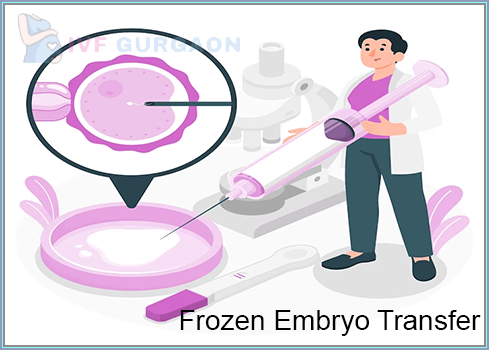

In vitro fertilization (IVF) is a complex process that involves retrieving eggs, fertilizing them in a laboratory, and transferring the resulting embryos to the woman’s uterus. In some cases, not all embryos are transferred immediately, and they can be frozen for future use. This is known as frozen embryo transfer (FET). In this article, we will discuss the advantages and success rates of FET in IVF.
Increased chances of success: Frozen embryos can be stored and used for future cycles, increasing the chances of a successful pregnancy without having to repeat the entire IVF process.
Less need for ovarian stimulation: Frozen embryos can be thawed and transferred during a natural cycle or with minimal ovarian stimulation, which can be more comfortable for the woman and may reduce the risk of ovarian hyperstimulation syndrome (OHSS).
Cost-Effective: FET can be more cost-effective than starting a new IVF cycle from scratch, as the cost of ovarian stimulation and egg retrieval is avoided.
Reduced risk of multiple pregnancies: By transferring a single frozen embryo, the risk of multiple pregnancies can be reduced, which is a common concern with fresh embryo transfer.
The success rates of FET in IVF depend on a variety of factors, including the quality of the frozen embryos, the woman’s age, and the underlying cause of infertility. However, overall, FET has shown to have similar success rates to fresh embryo transfer.
According to the American Society for Reproductive Medicine, the success rates of FET are as follows:
For women under 35 years old, the success rate of FET is approximately 40-50%.
For women between 35-37 years old, the success rate of FET is approximately 35-45%.
For women between 38-40 years old, the success rate of FET is approximately 25-35%.
For women over 40 years old, the success rate of FET is approximately 15-25%.
Factors that can impact the success of FET include the quality of the frozen embryos, the woman’s age, the uterine lining thickness, and any underlying medical conditions.
Frozen embryo transfer (FET) is a valuable option for couples undergoing IVF, as it provides a number of advantages and can be just as successful as fresh embryo transfer. By working closely with their medical team, couples can determine if FET is the right option for them and improve their chances of a successful pregnancy.